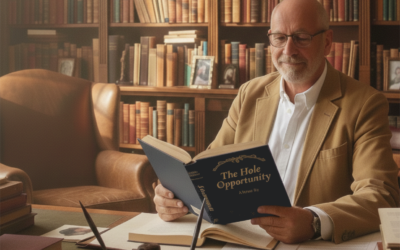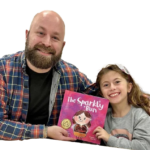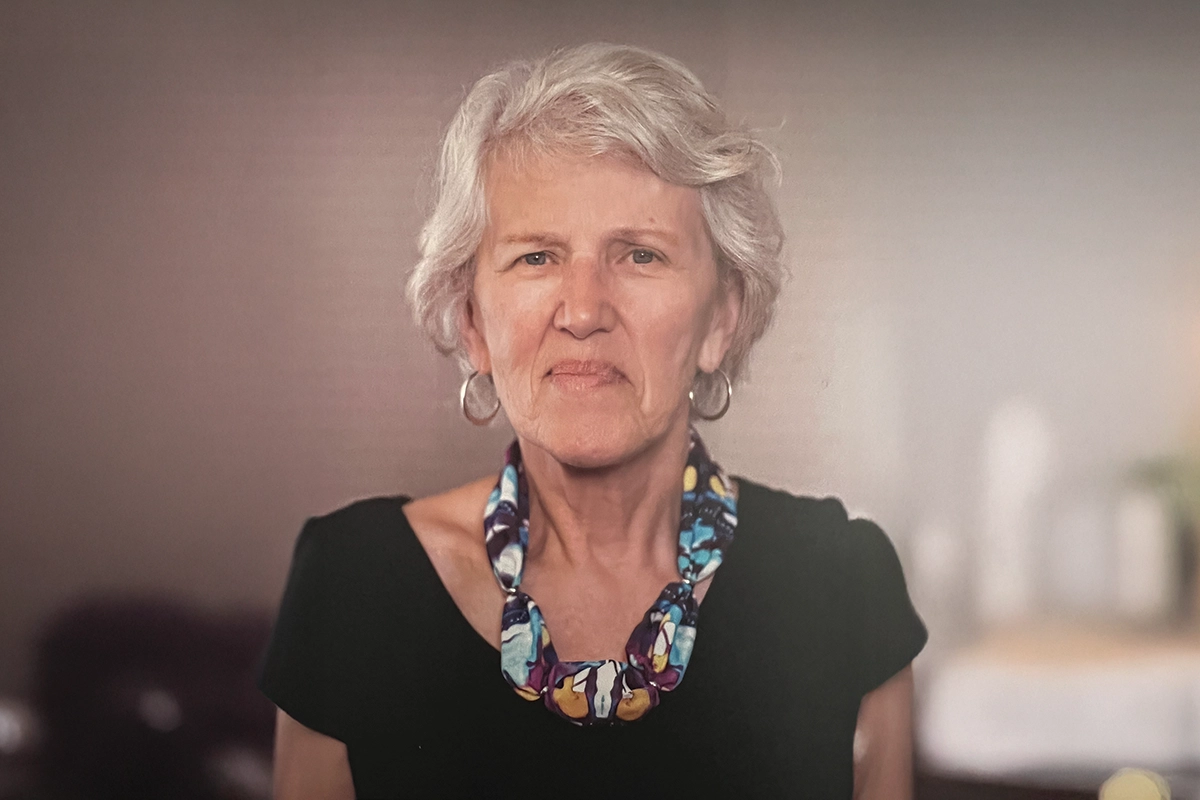Maria A. Perez Inspires With Genre-Bending Space Operas Full Of Adventure, Romance, And Redemption

Photo: Maria A. Perez, author of The Curse of Sotkari Ta trilogy, merges space adventure, romance, and moral dilemmas in her genre-bending works.
Author Of The Curse Of Sotkari Ta Trilogy Shares Her Journey, Inspirations, And Craft
Maria A. Perez combines intergalactic adventures, steamy romance, and deep emotional themes to create unforgettable stories that explore destiny, redemption, and human complexity in the space opera genre.
Maria A. Perez is a visionary force in the realm of speculative fiction, proving that the boundaries of genre are endlessly expandable when paired with imagination and emotional depth. Mosaic Digest magazine is thrilled to feature this riveting interview with an author whose dynamic storytelling has captivated readers across the globe. Perez’s ability to weave space adventure, romantic intrigue, and philosophical introspection into her work makes her a standout voice in modern science fiction. Whether diving into telepathy and galactic warfare or exploring the vulnerable core of a battle-hardened character, her stories brim with layer upon layer of tension, humanity, and wonder.
Her trilogy, The Curse of Sotkari Ta, and its prequel, Song of the Caged Warrior, showcase Perez’s knack for crafting genre-bending narratives that leave an indelible impression. Through her characters—flawed yet fiercely compelling—she guides readers into vibrant worlds where destiny collides with choice and redemption is hard-earned. At the heart of her saga lies a mother’s extraordinary journey, alien DNA, and steamy romance—all entangled in a high-stakes rebellion that delivers thrills and heartbreak in equal measure.
In this exclusive interview, Perez delves into the inspirations behind her work and shares how her lifelong fascination with science fiction, her Puerto Rican roots, and her experience navigating corporate corridors have shaped her storytelling. A devoted Trekkie and Star Wars enthusiast, Perez embraces the genre’s capacity for introspection and epic adventure, while embedding her narratives with themes of forgiveness and second chances. If the balance she strikes between universal truths and intergalactic tensions serves as any indication, Maria A. Perez is a writer whose works will inspire curiosity, empathy, and wonder for years to come.
Maria A. Perez is a masterful storyteller whose genre-defying narratives and poignant characters captivate readers and spark emotional resonance.
Here at Mosaic Digest, we not only celebrate Perez’s ability to create emotionally rich, genre-defying stories but also hope you’ll be inspired by her thoughtful insights into blending genres, exploring flawed characters, and drawing from the well of personal experience to pen unforgettable tales. Prepare to journey through one of science fiction’s most electrifying landscapes as we step into the brilliant mind of Maria A. Perez.
Your trilogy, The Curse of Sotkari, Ta blends elements of space adventure, rebellion, and steamy romance. What inspired you to centre your story on a mother from Earth embedded with alien DNA, and how did you balance those disparate thematic elements?
I have always enjoyed genre-bending fiction such as the Outlander series by Diana Gabaldon. In that story a married woman, through no fault of her own, gets hurled two centuries in the past. There she falls in love with a Scottish rebel. The couple is one of the most romantic pairs I have ever read, and yet, it is based on an infidelity. The series’ popularity goes to show that most readers are ready to accept the main character cheating on the husband she left behind. I was curious how people rationalized this.
Such stories inspire me to create complex, flawed protagonists who must face the consequences of their actions. These characters anchor the various elements across my trilogy. I wanted my stories to address questions such as: Do people who make serious mistakes deserve second chances and happiness, or are they doomed to a life of regret? I explored themes of forgiveness, redemption, destiny, and tough choices. My main character’s unique situation helped me delve into those concepts framed within the elements of the space opera genre that I love. I also think as a child of a divorced couple, some of my childhood experiences make their way in between the lines of my fiction.
In Song of the Caged Warrior, you explore the training of an orphan super soldier. How did you approach developing his voice and emotional journey, particularly as a non-human protagonist?
One of the elements that I most enjoy about the space opera genre is exploring non-human civilizations. I’m fascinated by what life might exist in space outside of our solar system. How might these people behave? What are their motivations, culture, and history?
Song of the Caged Warrior is a prequel to The Curse of Sotkari Ta trilogy and tells the story of Montor, the trilogy’s alien male lead. His character took me by surprise. He was originally meant to be just a secondary character who would appear in only a few chapters of the trilogy. We first meet him in Book One of the trilogy as the arrogant, strong, and powerful right-hand man to the ruthless commander who orchestrated Mina’s abduction. But there is more to Montor than meets the eye. He is a double agent who also assists the rebellion. As I fleshed out the details of his character, he became a larger-than-life persona who not only became the male lead of the trilogy but also deserved a book that would tell his back story.
Your work often weaves in themes like telepathy, galactic war, and portals. Which of these elements emerged first in your creative process, and did it guide the rest of the story?
The telepathic and telekinetic abilities of the Sotkari Ta people and the fact that their scientists embedded their genetic material into unsuspecting people across various planets in the galaxy is the basis of the trilogy and its prequel. The other elements you mentioned are typical tropes of the space opera genre.
Montor, the soldier in your trilogy, rediscovers his poetic side in a secret stash of poems. What role does poetry play in revealing his deeper character traits, and how did you conceive that twist?
Montor is a larger-than-life character that was so fun to write. His personality has so many layers to explore. He does a good job of appearing aloof when, in fact, his emotions run deep. He hides his vulnerable side under a mask of arrogance, power, and strength, and only reveals his vulnerabilities to the very few people he trusts. His poetry is an outlet for him to express these feelings.
You’ve described yourself as a devoted Trekkie and Star Wars fanatic, with early influences like Lost in Space and The Twilight Zone. Can you share how these sci-fi passions shaped your storytelling style, particularly in your romantic space opera?
The space opera genre relies heavily on the emotional journeys of its characters. These early influences inspire me to create relatable protagonists who end up on epic, heroic quests despite their shortcomings and moral dilemmas.
Your writing clearly serves as a cathartic outlet. To what extent do your personal experiences—such as living in Puerto Rico, balancing family life, or your early career—shape the emotional undercurrents of your stories?
I think my early childhood experiences, the challenges of adulting and family life, confronting change and things that are out of my control, and faith-based beliefs, help me to write compelling characters who experience the entire gamut of emotions throughout their journey.
Finally, what advice would you offer to aspiring or fellow authors attempting to blend genres—like romance, science-fiction, and opera—in their work?
I recommend that authors read not only books like the ones they are writing but read and view a variety of works to understand the tropes and deliverables of each genre. I think character-driven stories can be a perfect canvas to pull together the different elements of a genre-bending story.













